|
The Film

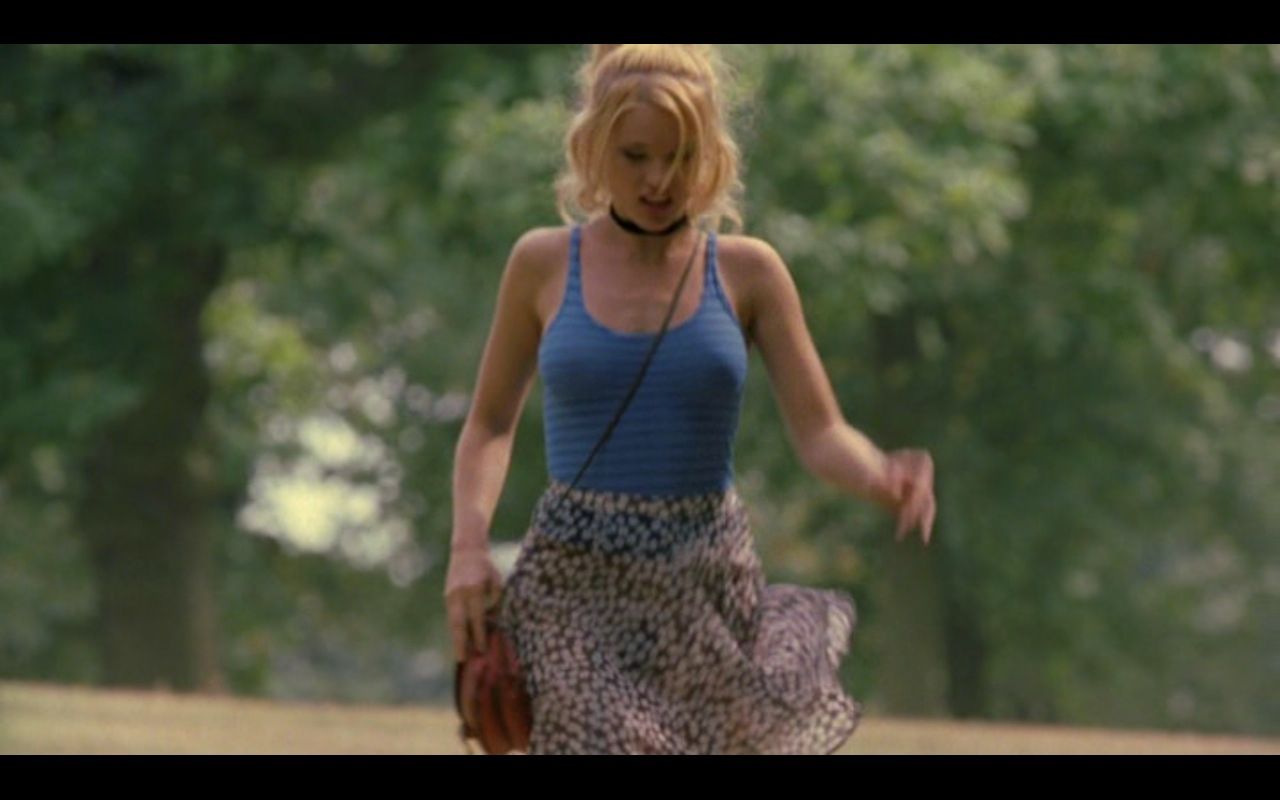 Cheeky (Tra(sgre)dire) (Tinto Brass, 2000) Cheeky (Tra(sgre)dire) (Tinto Brass, 2000)
Once declared by Roberto Rossellini as one of the most gifted filmmakers in modern Italy, during the mid-1970s Giovanni Tinto (under his pseudonym Tinto Brass) seemed to break with the more experimental narrative films that he had, till that time, been associated with. During the 1960s, Brass made a group of pictures with a curious Pop Art-type aesthetic: these experimental narrative films, often with strong political content, included the Italo-Western Yankee (1966), the thrilling all’italiana Col cuore in goia (Deadly Sweet, 1967), Nerosubianco (Attraction, 1969), L’urlo (The Howl, 1968), and the two films Brass made with the husband-and-wife acting team of Franco Nero and Vanessa Redgrave, Dropout (1971) and La vacanza (The Vacation, 1971). The turning point in Brass’ career came with Salon Kitty (1975): the first feature Brass directed after a five year break following La vacanza, which had been a commercial flop, Salon Kitty was still heavily political but featured increasing erotic content. Subsequently, Brass would direct (and remove his name from) the infamous Caligula (1979), a less successful mix of sex and politics; and throughout the 1980s, 1990s and 2000s Brass carved his niche within the realm of erotic cinema, delivering films that mixed reflection on cultural and political issues within the zeitgeist with Brass’ own fetishistic interest in the voluptuous derrieres of his curvy actresses and a recurring theme of voyeurism.
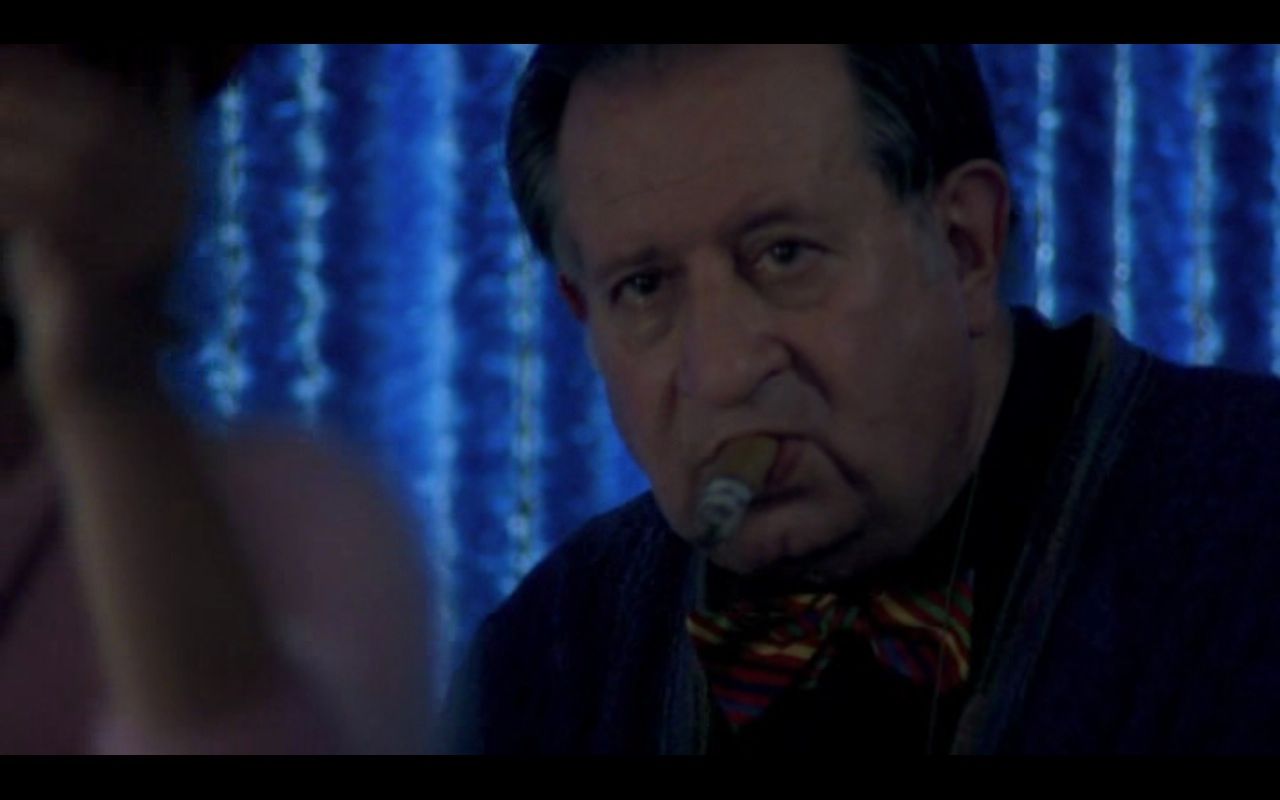 Brass’ films became increasingly concerned with earthy excesses and began to include near-hardcore material: both male and female nudity in his films was graphic almost to the point of being confrontational. Because of this mixture of satire and eroticism, Brass’ films continue to divide viewers: fans of Brass’ pictures are drawn to his combination of satire and sleaze, seeing the sexual excesses and open vulgarity of his films as a key element of their subversive worldview. On the other hand, critics of Brass often denounce him as a director of tacky sex pictures that aspire to arthouse status. However, these are not mutually exclusive perspectives: arguably, Brass’ work is interesting precisely because of its curious mixture of the sensual and the political, exploring the relationships between desire, politics, sexuality and power. Brass’ films became increasingly concerned with earthy excesses and began to include near-hardcore material: both male and female nudity in his films was graphic almost to the point of being confrontational. Because of this mixture of satire and eroticism, Brass’ films continue to divide viewers: fans of Brass’ pictures are drawn to his combination of satire and sleaze, seeing the sexual excesses and open vulgarity of his films as a key element of their subversive worldview. On the other hand, critics of Brass often denounce him as a director of tacky sex pictures that aspire to arthouse status. However, these are not mutually exclusive perspectives: arguably, Brass’ work is interesting precisely because of its curious mixture of the sensual and the political, exploring the relationships between desire, politics, sexuality and power.
The film under discussion, Cheeky (2000) was released in Italy under the title Tra(sgre)dire: the Italian title is a compound of the verbs trasgredire (to transgress) and tradire (to betray). (For the record, the title on this print is Transgressing.) Cheeky is in some ways a reworking of Brass’ previous film Così fan tutte (All Ladies Do It, 1992), in which Diana (Claudia Koll) spices up her love life with husband Paolo (Paolo Lanza) by telling him of her flirtatious relationships with other men. Cheeky similarly focuses on the ways in which desire may be provoked by jealousy.
The film has an interesting structure, featuring dual narratives that eventually come together: flirtatious Venetian student Carla (Yuliya Mayarchuk) is living, working and studying in London whilst her boyfriend Matteo (Jarno Berardi) studies in Venice with his friend Luca (Vittorio Attene). Matteo’s jealousy is provoked by Luca, who insists that 98 per cent of women cheat on their partners whilst on holiday. Meanwhile, in London Carla desires to rent a flat, anticipating the arrival of Matteo. The estate agent Moira (Francesca Nunzi) makes sexual advances towards Carla, declaring her love for her. When Carla innocently tells Matteo of Moira’s desire for her, Matteo becomes increasingly angry. He refuses to visit Carla in London, although he later recants, turning up on the doorstep of her new flat to find a naked Moira already there. Matteo and Carla circle one another, until a chance encounter with a voyeur in Hyde Park, a middle-aged cuckold who enjoys watching his attractive wife share sexual adventures with young men, encourages Matteo to become aware of the extent to which his sexual jealousy has exacerbated his desire for Carla. The couple reunite, with Matteo telling Carla, ‘Suspicion is better than the truth, after all. Your lies reveal your desire more than any confession could. Promise that you’ll always lie to me’.
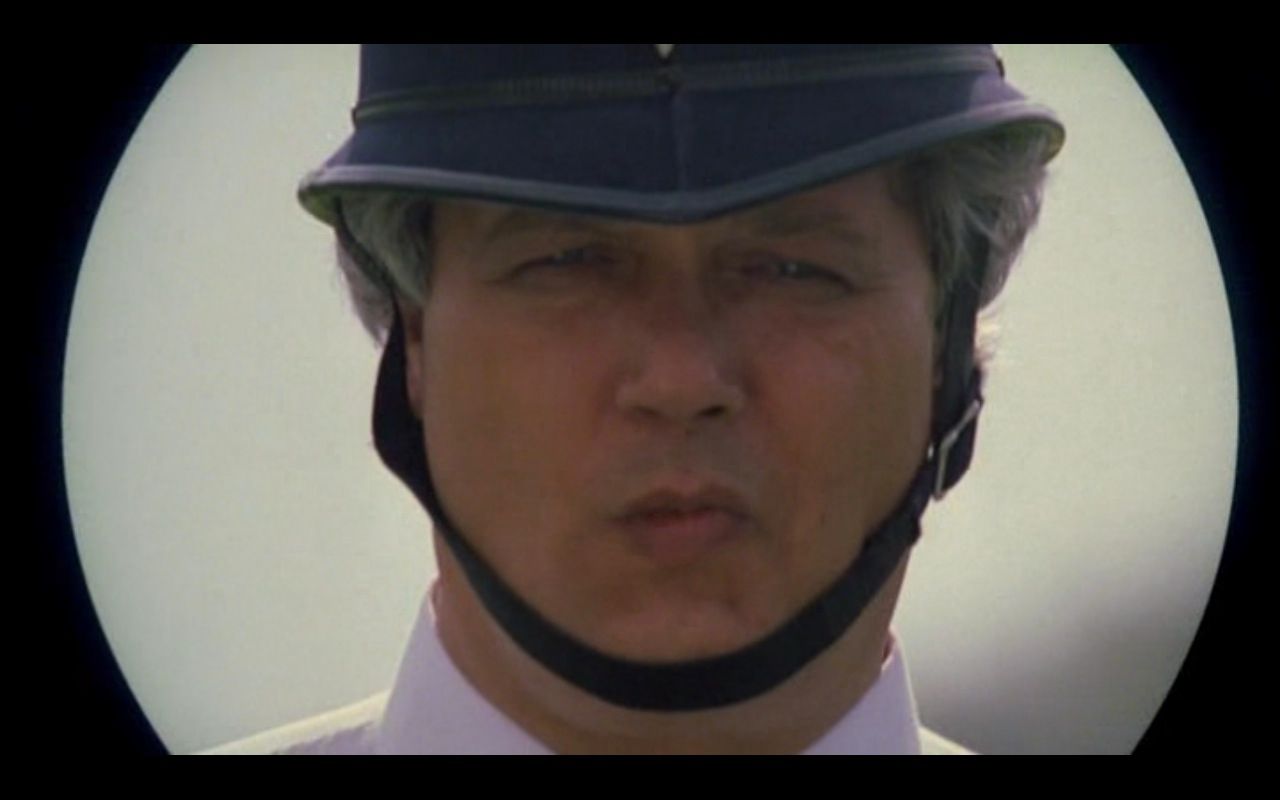 The film begins and opens in a park that is intended to represent Hyde Park. Brass opens his picture with a highly self-conscious shot: a typical English policeman, framed in close-up with an iris effect, asking the question, ‘Who is in charge?’ This shot recurs at the end of the film when, after they have been reunited, Matteo and Carla are confronted by the same policeman, who asks the same question when he sees them drop a piece of paper. The question resonates throughout the film: Cheeky is in essence a dialectical account of the relationships between men and women and, more intimately, the balance of power within domestic relationships. Matteo’s discovery of the ways in which his sexual envy provokes desire takes him through a recollection of his teenaged years, in which he had a sexual encounter with an older woman, declared to be ‘a whore’ by the local youth, whilst being observed surreptitiously by the woman’s husband. The feelings are consolidated by some graffiti he observed near Carla’s house, when he returned there before traveling to London. (Carla asks him to bring some clothes and her copy of Freud’s ‘The Interpretation of Dreams’, her favourite book: ‘Even though the interpretation is always about sex, I’m really missing that book’, she tells him.) This graffiti declares, ‘The thought of you cheating on me makes me mad with jealousy, and jealousy makes me crazy with desire’. The film begins and opens in a park that is intended to represent Hyde Park. Brass opens his picture with a highly self-conscious shot: a typical English policeman, framed in close-up with an iris effect, asking the question, ‘Who is in charge?’ This shot recurs at the end of the film when, after they have been reunited, Matteo and Carla are confronted by the same policeman, who asks the same question when he sees them drop a piece of paper. The question resonates throughout the film: Cheeky is in essence a dialectical account of the relationships between men and women and, more intimately, the balance of power within domestic relationships. Matteo’s discovery of the ways in which his sexual envy provokes desire takes him through a recollection of his teenaged years, in which he had a sexual encounter with an older woman, declared to be ‘a whore’ by the local youth, whilst being observed surreptitiously by the woman’s husband. The feelings are consolidated by some graffiti he observed near Carla’s house, when he returned there before traveling to London. (Carla asks him to bring some clothes and her copy of Freud’s ‘The Interpretation of Dreams’, her favourite book: ‘Even though the interpretation is always about sex, I’m really missing that book’, she tells him.) This graffiti declares, ‘The thought of you cheating on me makes me mad with jealousy, and jealousy makes me crazy with desire’.
Both Matteo and Carla have characters who try to educate them in the ways of sexual relations between men and women: Luca and Moira are in many ways ‘twin’ characters, their actions and dialogue reflecting one another. Whilst attempting to seduce Carla, Moira tells her that ‘Men have no idea what women want [….] They think only about themselves’. (Moira then gropes Carla, declaring, ‘You’re all wet, like your home town.) Meanwhile, in Venice Luca – whose exaggerated Don Juanism may or may not be a mask for his homosexual desire for Matteo (he’s certainly fond of groping his ‘equipment’ in front of his friend) – discusses the infidelity of the girlfriend, Giulia, of their friend Paolo. Luca asks Matteo if he ever masturbates whilst thinking of Carla having sex with an Englishman; he taunts Matteo: ‘You think someone can go for a month without shagging’, he provokes his friend. ‘It’s different for women’, Matteo protests, ‘Emotions are more important. ‘Bollocks’, Luca interjects, ‘They’re just bigger liars than us and better at faking it. Don’t you believe it: they get wet first and then they fall in love [….] That’s why I like them, because they’re all whores’. Later, in flashback, Matteo remembers an incident in which he, Carla, Luca and a French student named Bernard (Mauro Lorenz) visited the cinema together. Whilst wandering home through the mist-enshrouded nighttime streets of Venice, they reflected on the topic of infidelity, Luca telling them that ‘betrayal should be seen as an act of love. It’s the magic potion that wakes up people who’ve been asleep for too long’. Through the characters of Moira and Luca, and their relationships with Carla and Matteo, the film develops an almost didactic account of the dialectical relationships between men and women, and between respective perceptions of ‘masculine’ and ‘feminine’ behaviour.
The film is presented uncut, with a running time of 90:32 minutes.
Video
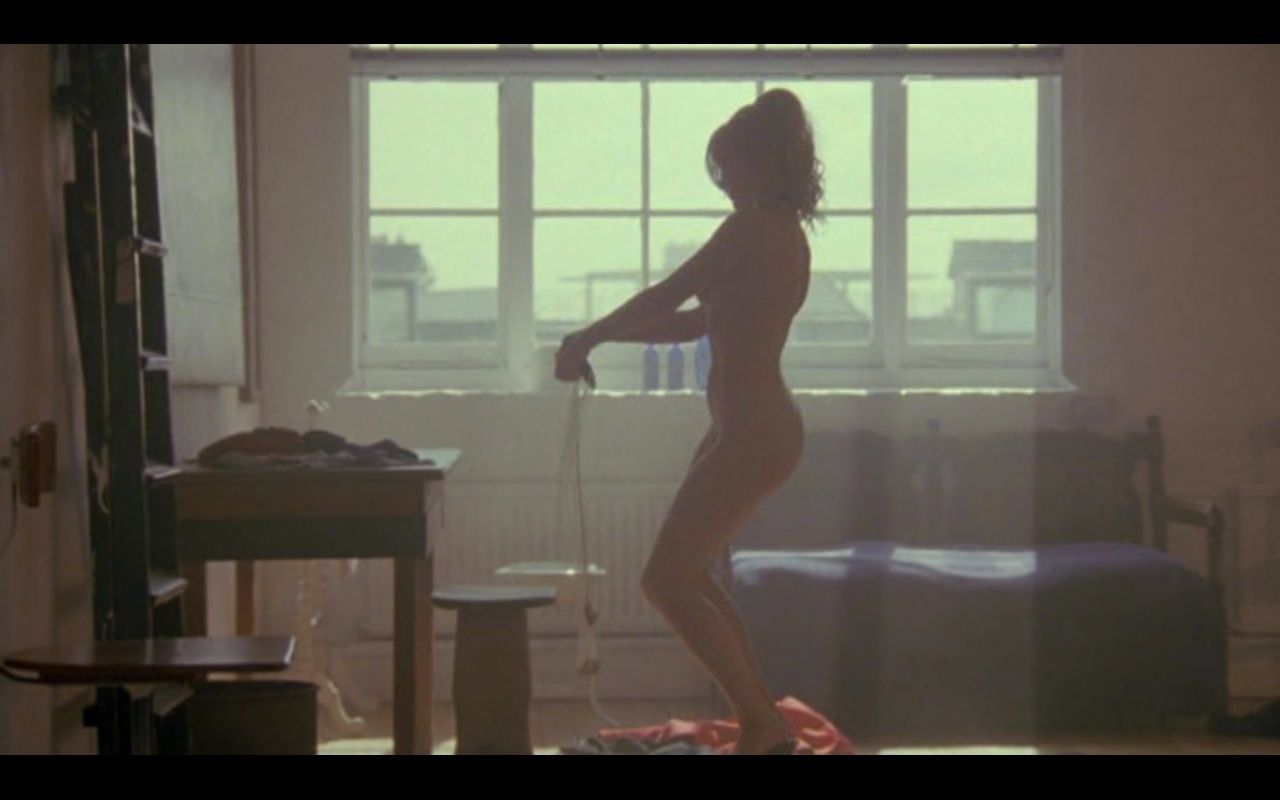 The film is presented in an aspect ratio of 1.78:1. The original aspect ratio, as declared in the closing credits, was 1.66:1. The difference is arguably minimal: certainly, the compositions in this presentation look fine. The film is presented in an aspect ratio of 1.78:1. The original aspect ratio, as declared in the closing credits, was 1.66:1. The difference is arguably minimal: certainly, the compositions in this presentation look fine.
The 1080p presentation is contained dual-layered Blu-ray disc (using the AVC codec), and is sourced from a master prepared at the Cinecittà Digital Factory. Brass’ films are characterised by their use of soft, diffuse light: he often frames characters in silhouette against bright backdrops (such as windows), exposing for the mid-tones and thus creating a very diffused lighting scheme. This is slightly less evident in Cheeky than it is in some of Brass earlier films, but it’s still a trope of his work that can be seen in this picture. The photography is fairly soft focus and romantic, once again indexical of Brass signature style. In light of this, the presentation of the film on this Blu-ray is more than satisfactory: colours are consistent and, accounting for Brass’s preference for diffuse light and soft focus photography, contrast is strong.
This presentation certainly beats the available DVDs (a number of which seemed to suffer from compression issues during some of the sequences that are more darkly lit), and is roughly commensurate with the US Blu-ray released by Cult Epics. The Arrow Blu-ray seems to share the colouring of the US Blu-ray, with cooler, more naturalistic skin tones than many of the DVD releases and the beach-set flashback to Carla’s fling with Bernard being presented with a strong yellow/golden tint. Which presentation is more ‘accurate’ in terms of Brass’ intentions is anyone’s guess, however: suffice to say that the presentation on this disc is very pleasing.
Audio
There are two audio options, both lossless. The viewer may choose between the English dub, presented via a LPCM 2.0 stereo track; or the Italian audio (which contains some English dialogue), presented via a DTS-HD Master Audio 5.1 track, which comes alive in sequences featuring Pino Donaggio’s playful score. (This track is erroneously listed on the disc menu, and possibly on the packaging, as a LPCM 2.0 stereo track.) The Italian version is arguably preferable: it features a mix of Italian and English that is more naturalistic, considering that Carla is an Italian student studying in London. (On this track, a number of the English characters – including the policeman who opens the film and Moira – speak English, albeit often with a heavy Italian accent; curiously, some sequences which by rights should be in English – such as the party scene – are presented in Italian.) There also seems to be some difference in pitch between the two tracks, with the Italian audio sounding more natural; the English dub track also seems quite hollow, suffering from quite a lot of reverb. By contrast, the Italian track is richer and more rounded.
English HoH subtitles are provided for the English dub, and newly-translated English subtitles are provided for the Italian audio track.
To switch between different audio/subtitle options, one must go through the disc menu: these options cannot be changed with the audio/subtitle buttons on your Blu-ray player’s remote control alone.
Extras
The disc includes two extras:
- a trailer (3:23) (HD, 1.78:1).
- a featurette about the production of the film, ‘Dal set di “Tra(sgre)dire” di Tinto Brass’ (8:16) (SD, 4:3).
Overall
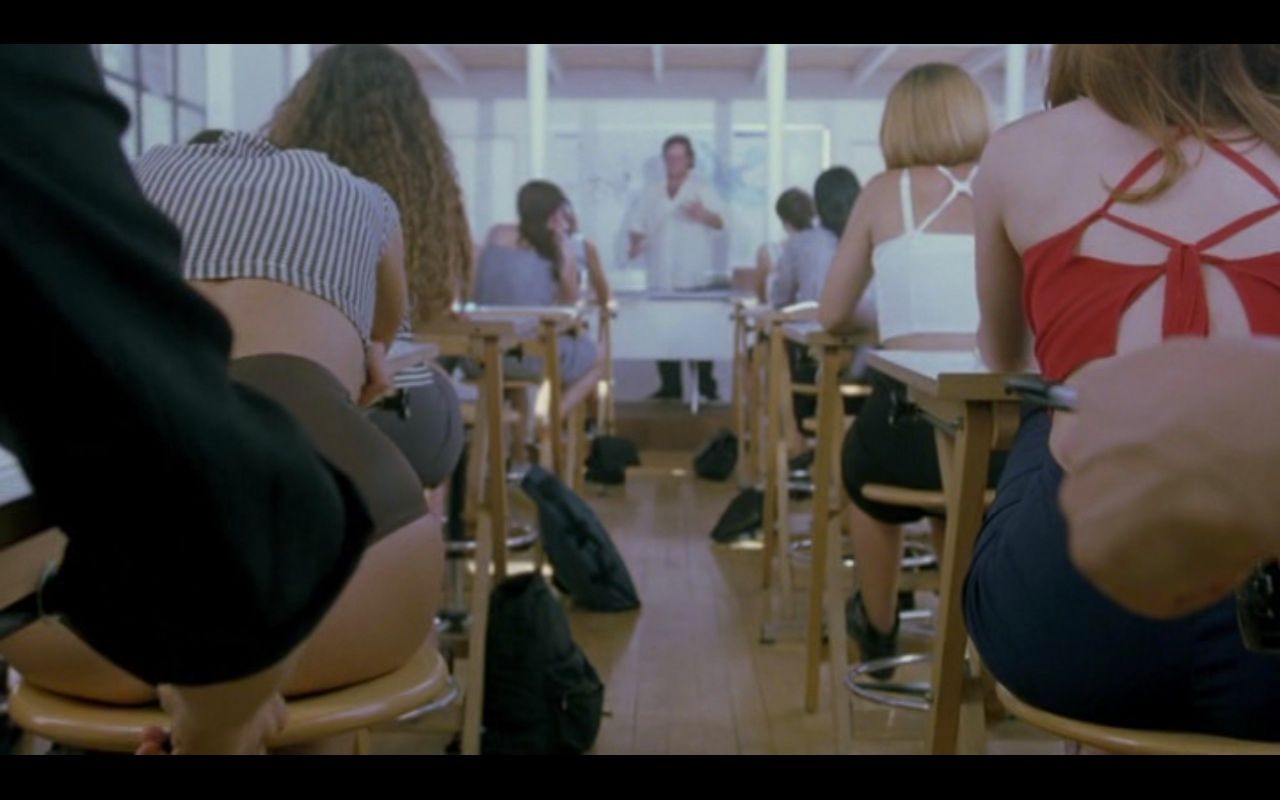 Cheeky is filled with the philosophy of life that runs through Brass’ work. As noted above, the film has thematic similarities with Brass’ earlier Così fan tutte. Additionally, the film features a party sequence in which the women are required to bare their behinds for judgement by Moira, an exercise mockingly compared by the guests to the Judgement of Paris. When a guest asks what this is in aid of, another guest responds, ‘Because the face deceives but the ass never lies’. Similar statements recur throughout Brass’ work (notably expressed at some length by Patrick Mower’s character in Frivolous Lola, which Arrow have also released on Blu-ray), and have been made by Brass in interviews: Brass once stated that the ‘Arse is the real mirror [of the soul] Show me your arse and I can tell who you are’ (Brass, quoted in Sanchez-Moraleda & Castoldi, : 51). There’s a mocking suggestion of the sexual deviance of the English: at the party, Carla is manoeuvered into having a sexual tryst with Moira’s ex-husband in the bathroom. The man sodomises Carla, insisting that it is normal in England, referring to it as ‘the path of the Satyr’. Brass’ ‘cheeky’ playfulness, and his satiric sensibility, is also foregrounded in a sequence in which we see Luca and Matteo attending a very serious lecture on Venice’s economic history. However, as the voice of the lecturer fades on the soundtrack, the young men (and the camera) reveal themselves to be more interested in the open thighs and revealed underwear of the female students – who themselves are revealed, in cutaways to their conversations, to be more concerned with making jokes about ‘Our teacher’s prick’. Cheeky is filled with the philosophy of life that runs through Brass’ work. As noted above, the film has thematic similarities with Brass’ earlier Così fan tutte. Additionally, the film features a party sequence in which the women are required to bare their behinds for judgement by Moira, an exercise mockingly compared by the guests to the Judgement of Paris. When a guest asks what this is in aid of, another guest responds, ‘Because the face deceives but the ass never lies’. Similar statements recur throughout Brass’ work (notably expressed at some length by Patrick Mower’s character in Frivolous Lola, which Arrow have also released on Blu-ray), and have been made by Brass in interviews: Brass once stated that the ‘Arse is the real mirror [of the soul] Show me your arse and I can tell who you are’ (Brass, quoted in Sanchez-Moraleda & Castoldi, : 51). There’s a mocking suggestion of the sexual deviance of the English: at the party, Carla is manoeuvered into having a sexual tryst with Moira’s ex-husband in the bathroom. The man sodomises Carla, insisting that it is normal in England, referring to it as ‘the path of the Satyr’. Brass’ ‘cheeky’ playfulness, and his satiric sensibility, is also foregrounded in a sequence in which we see Luca and Matteo attending a very serious lecture on Venice’s economic history. However, as the voice of the lecturer fades on the soundtrack, the young men (and the camera) reveal themselves to be more interested in the open thighs and revealed underwear of the female students – who themselves are revealed, in cutaways to their conversations, to be more concerned with making jokes about ‘Our teacher’s prick’.
Cheeky is Tinto Brass on top… well, ‘cheeky’ form. The presentation on this disc is very good, especially in terms of its audio and subtitle options. Hopefully, Arrow will continue to release Brass’ work on Blu-ray!
References:
Calabrese, Carlo, 2004: La chiave di lettura di Tinto Brass. Rome: Edizioni Interculturali
Lori, Stefano, 2000: Tinto Brass. Rome: Gremese Editore
Sanchez-Moraleda, Martina & Castoldi, Gian Luca, 2003: ‘Tinto Brass Interviewed’. In: Fenton, Harvey (ed), 2003: Flesh & Blood Compendium. London: FAB Press
NB. Please note that the images used in this review are for the purposes of illustration only.
| The Film: |
Video: |
Audio: |
Extras: |
Overall: |
|


